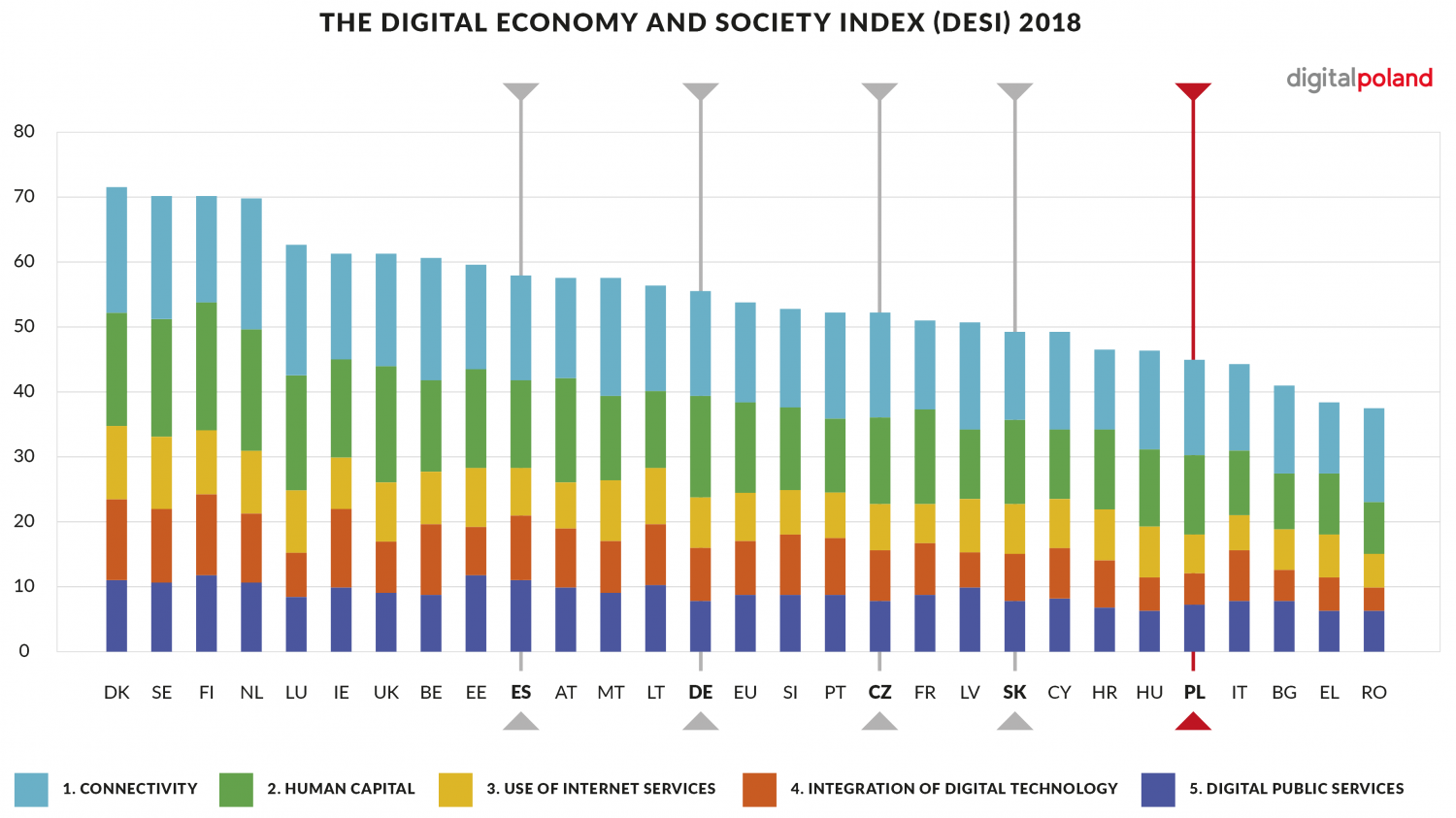Our website is using cookies to deliver best possible experience to you. By using it you agree to cookies policy.
In order to present Poland's place in the field of digitization, we should refer to a wider perspective - global economic indicators as a measure of entrepreneurship, innovation and competitiveness.
Published annually by the Global Entrepreneurship and Development Institute (GEDI).
The indicator measures the quality and dynamics of entrepreneurial ecosystems at the national, regional and local levels in 137 countries.
In 2018, the first place in the ranking was taken by the United States, the second by Switzerland and the third by Canada. Poland was only ranked at the 30th place.
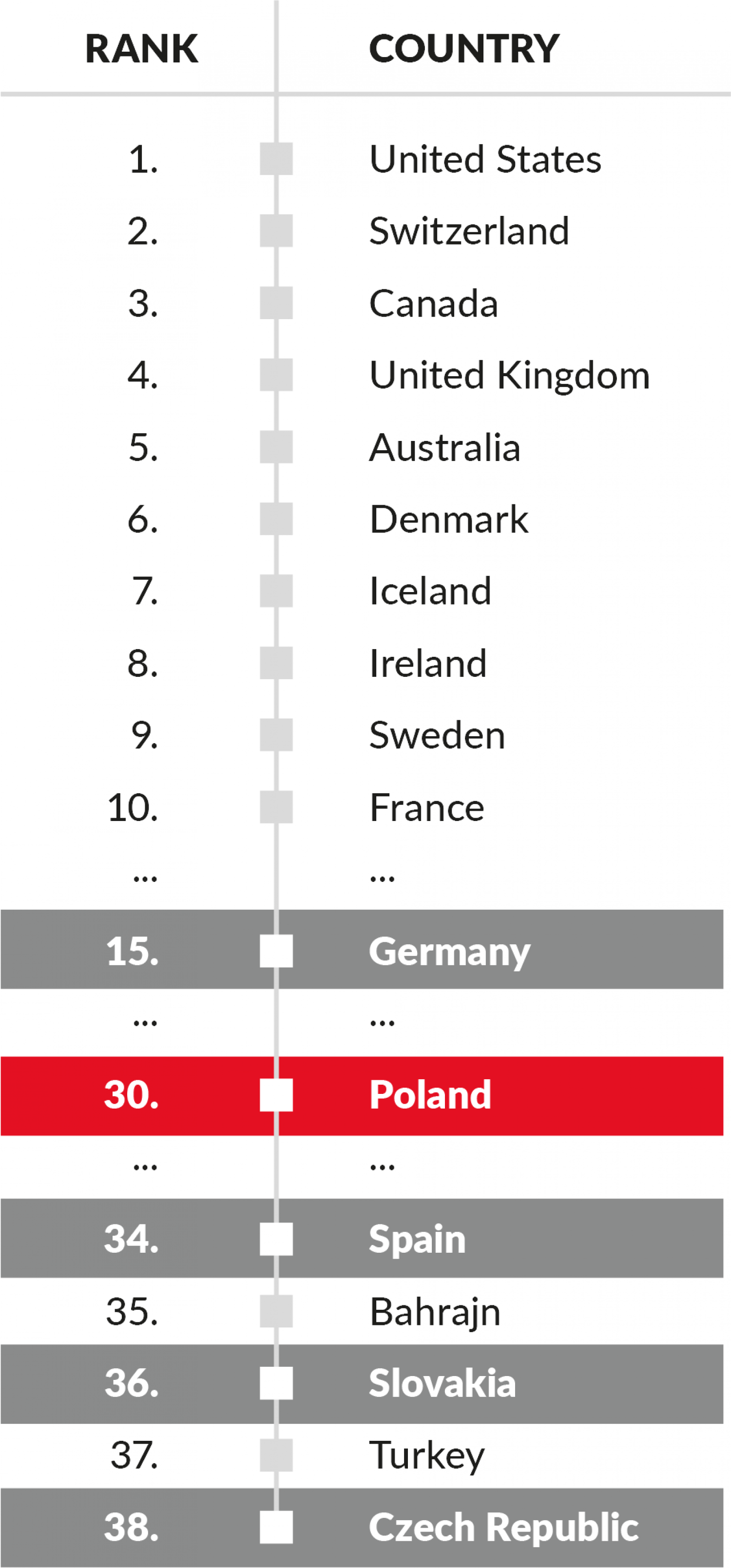
Developed by the University of Cornell, which is considered one of the most prestigious American universities, INSEAD and the World Intellectual Property Organization.
The index provides detailed data on the state of innovation in 126 countries. Its indicators examine, among others political environment, education, infrastructure and business.
In 2018, Switzerland took the first place, the second Netherlands and the third Sweden. Poland was placed at the the 39th position.
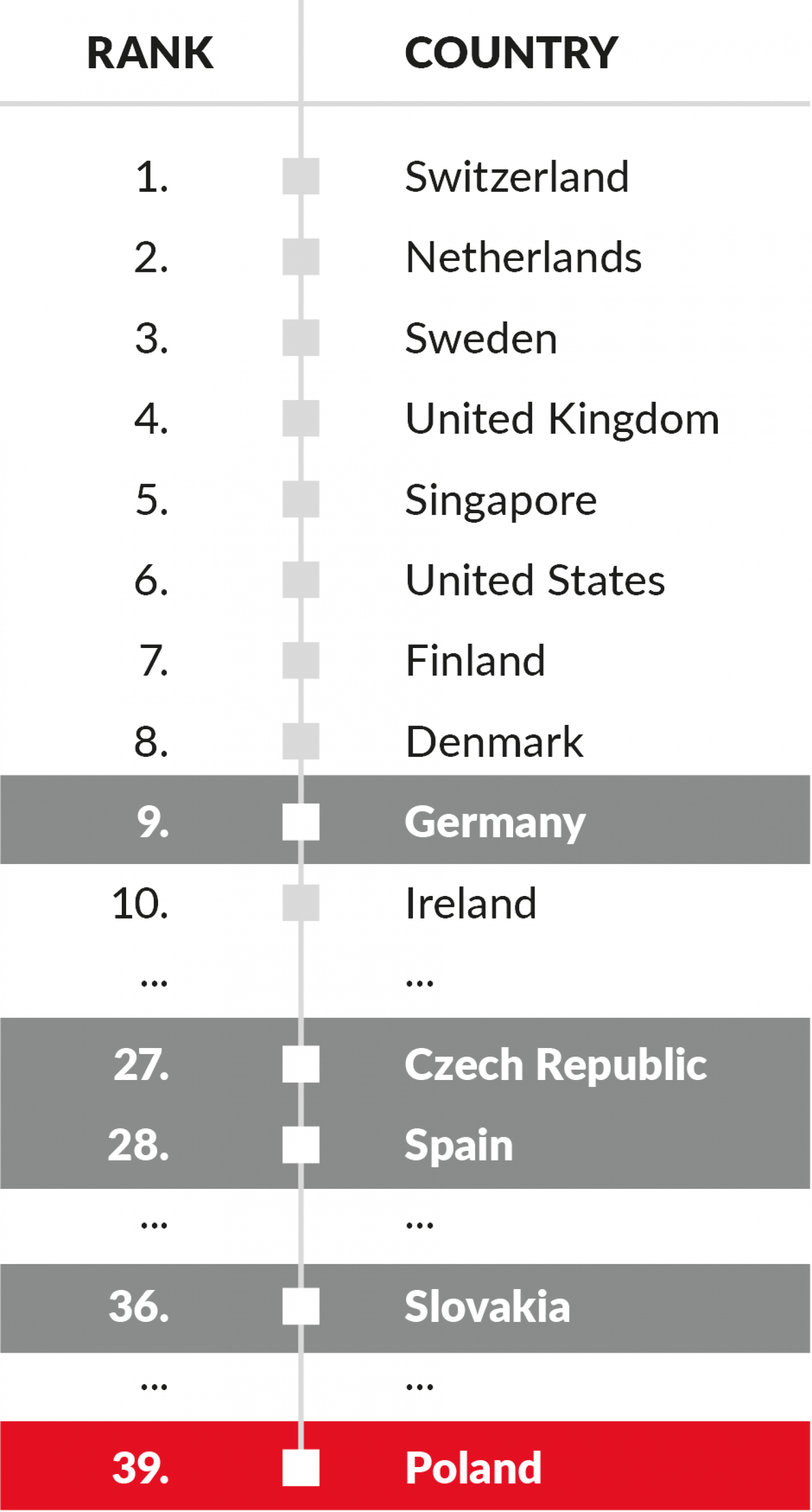
Published by the World Economic Forum.
The index determines the capacity of individual countries to ensure long-term economic growth. Includes statistical data from organizations recognized internationally, including International Monetary Fund, World Bank and various specialized United Nations agencies, e.g. UNESCO.
In 2018, the first place was taken by the United States, the second by Singapore and the third by Germany. Poland took the 37th place in the ranking.
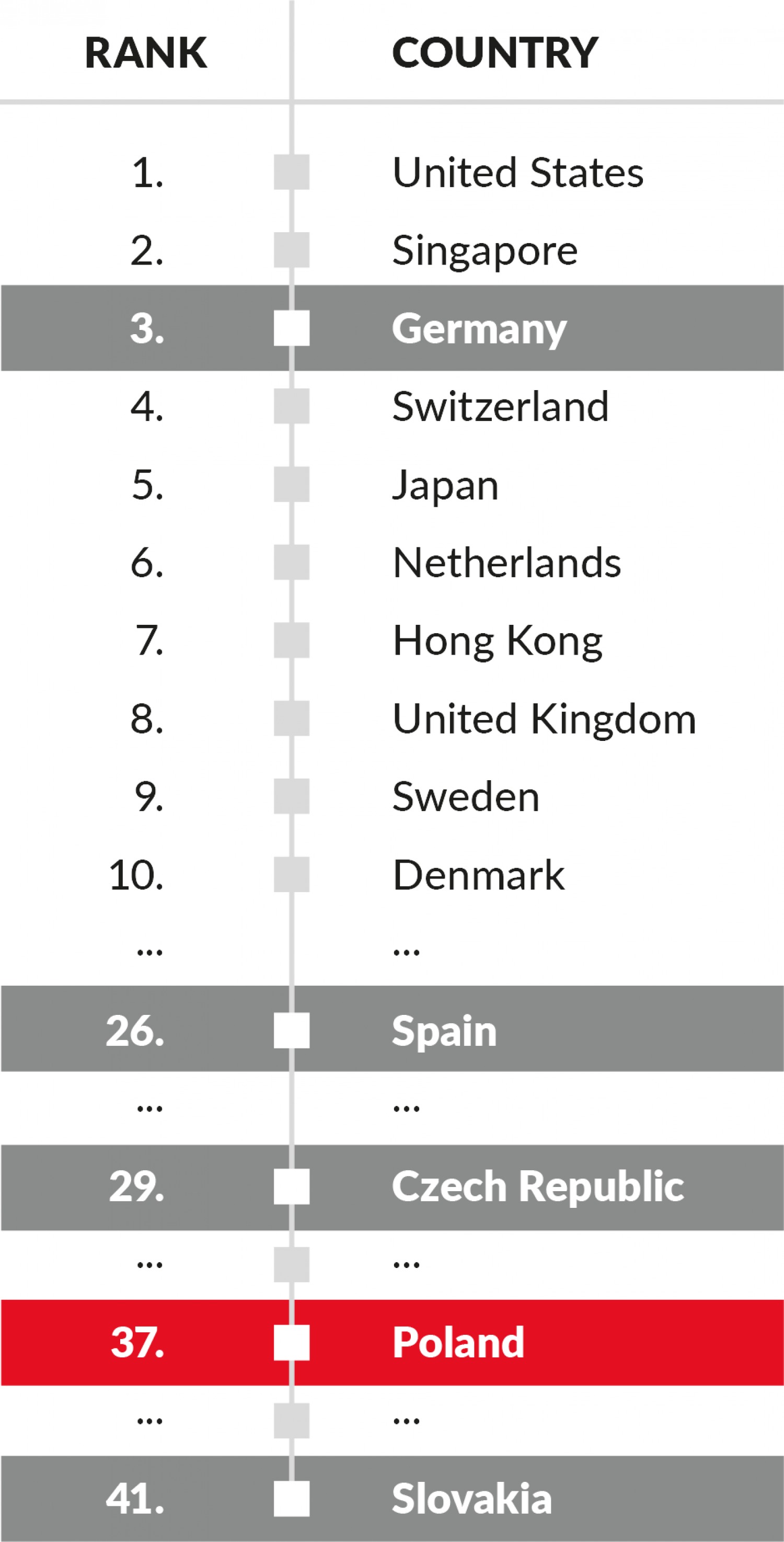
Ranking published by IMD (International Institute for Management Development).
It consists of three factors - knowledge, technology and readiness for the future. Knowledge boils down to the necessity of discovering know-how, understanding and building new technologies. Technologies mean a general context that enables the development of digital technology. Readiness for the future in turn determines the level of the country's preparation for using digital transformation.
Poland took the 36th place in the ranking in 2018.
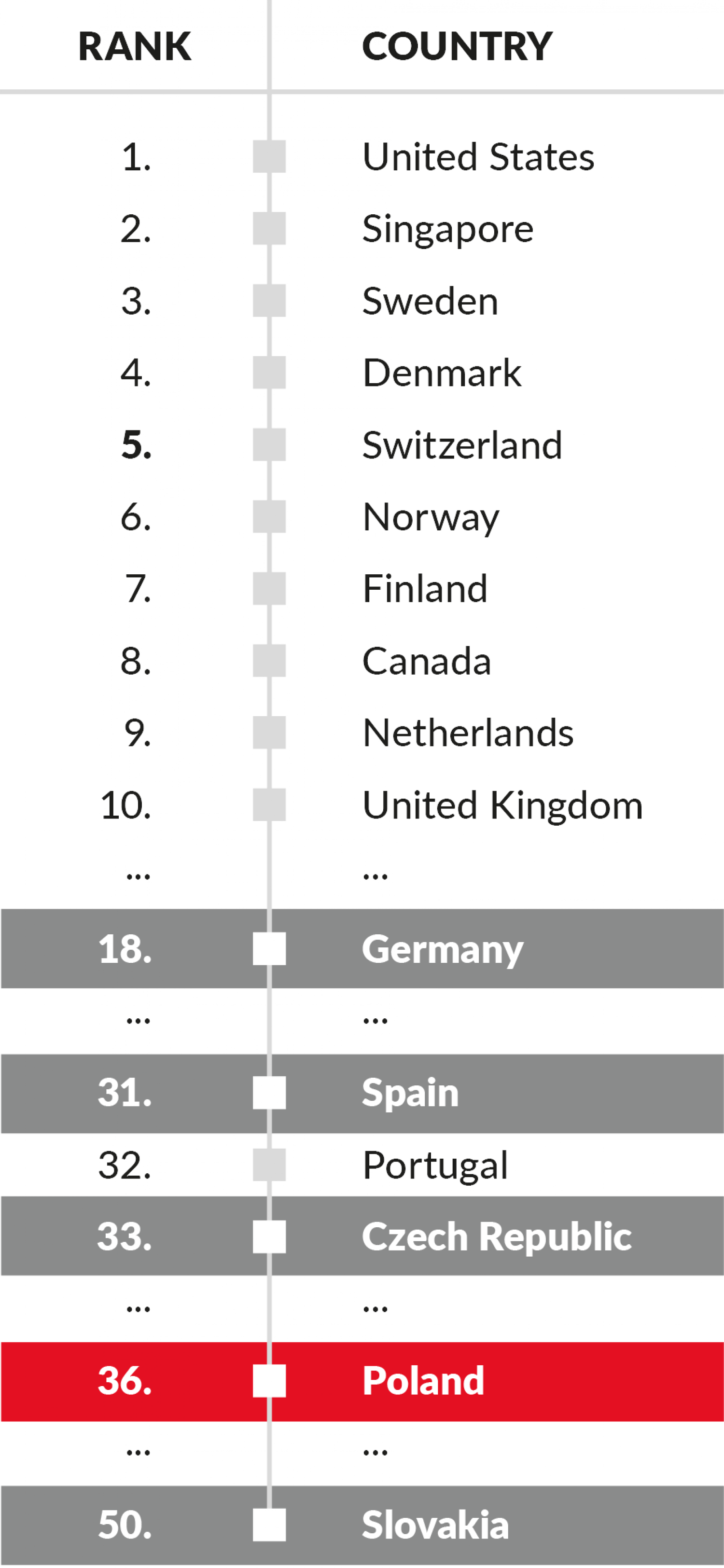
The DESI index, the Digital Economy and Society Index, is published every year by the European Commission and shows the digital progress of 28 countries belonging to the European Union. In 2018, Poland ranked 24th, maintaining the position from 2017.
Countries are evaluated in five areas: communication, human capital, the use of the Internet by citizens, the integration of digital technologies and the use of e-services in the public sector.
Over the last two years, Poland has improved its position in the ranking in terms of communication and human capital. We are also better considering the results of using the Internet, integrating digital technology and digital public services. The 2017 report states that Poland has made visible progress in the development of mobile broadband services as well as fast and ultra-fast broadband connections, while progress on all human capital indicators has been moderate. Despite the more frequent use of video calls, social networks and online purchases, Poland fell in the ranking when it comes to Internet use. It maintained the same position in the case of digital technology integration, despite significant improvements in the area of electronic information exchange, use of cloud services and e-invoicing.
Poland, according to the index's authors, belongs to the group of countries with low results. The authors of the ranking underline that we have a lot to catch up with other European Union countries.
